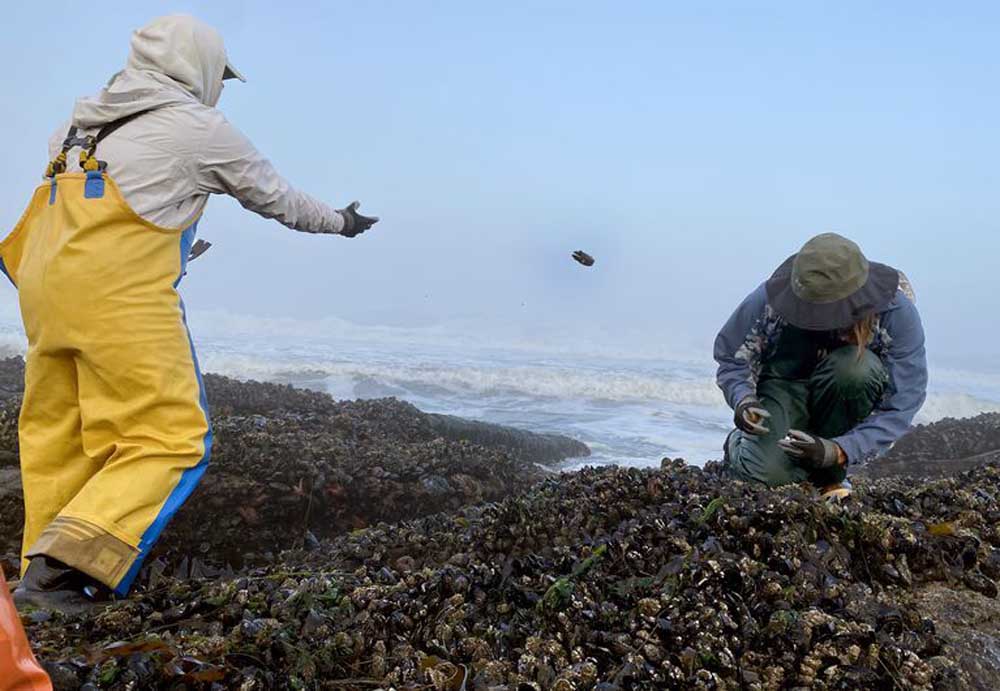The mussel harvest along the Oregon Coast, extending from the Washington border to Florence, has been suspended following the detection of paralytic shellfish toxins in recent samples. The Oregon Department of Agriculture (ODA) and the Oregon Department of Fish and Wildlife (ODFW) announced the halt on September 30, 2025, citing health risks associated with consuming contaminated mussels.
Eating these mussels can lead to severe symptoms, including numbness, nausea, vomiting, and, in extreme cases, paralysis. The paralytic shellfish toxin (PST) is produced naturally by phytoplankton and can accumulate in marine life, particularly in mussels. “Mussels are the canary in the mine shaft,” stated Matt Hunter, ODFW shellfish project leader, emphasizing their propensity to absorb toxins more than other marine organisms.
In 2024, an outbreak of paralytic shellfish poisoning affected over 40 individuals, with several requiring hospitalization. Since then, Hunter noted, “everything has us on our toes.” He explained that mussels can quickly accumulate PST, making regular monitoring essential. Testing for PST can only occur during a series of low tides, creating uncertainty about whether test results indicate a rising or declining trend in toxin levels.
Ongoing Monitoring and Safety Measures
Researchers will conduct tests for shellfish toxins bi-monthly. Harvesting can resume only after two consecutive tests reveal safe toxin levels. The earliest possible reopening for harvesting is expected by the end of October 2025.
According to Alex Manderson, a shellfish specialist with ODA’s food safety division, the exact causes of phytoplankton’s increased biotoxin production remain unclear. “It is not very well understood,” Manderson remarked. Changes in temperature, light intensity, and water chemistry likely play a role, but the relationship is unpredictable, necessitating ongoing monitoring.
While the levels of biotoxins in the water are not harmful to humans or pets, mussels can concentrate these toxins to dangerous levels. Manderson warned that cooking or freezing contaminated mussels does not eliminate the toxin. “It is basically a poison, so it doesn’t grow or diminish,” he added.
The current toxin levels, although not lethal, should not be underestimated. “The levels that we saw are not super high, but definitely not a thing to mess about with,” Manderson stated. He further explained that the neurotoxin could cause symptoms like “numbness, tingling of the lips and tongue, and upset stomach.”
Hunter cautioned that biotoxin levels can change rapidly, citing the previous outbreak in 2024 when toxin levels surged from below the closure threshold to an alarming 69 times the threshold in just four days. This unpredictability underscores the importance of continued vigilance and testing along the Oregon Coast.
As authorities work to ensure public safety, the suspension of mussel harvesting serves as a crucial reminder of the potential dangers posed by naturally occurring marine toxins.






































































